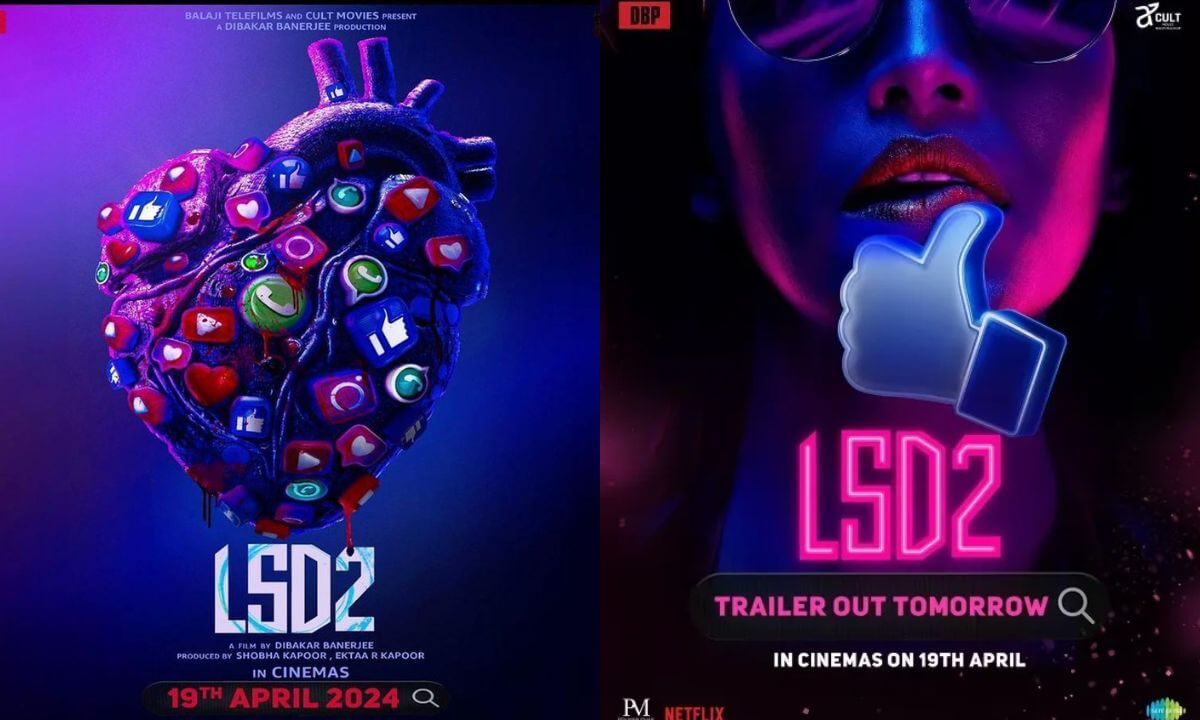It has been 14 years since Dibakar Banerjee shook the foundations of Indian cinema with “Love Sex Aur Dhokha” (LSD), a film that exposed the underbelly of societal issues through the lens of a camera. With the release of its sequel, “Love Sex Aur Dhokha 2” (LSD 2), Banerjee, along with producer Ekta Kapoor, delves deeper into a far grimmer reality shaped by the internet age. The sequel, set in a world dominated by social media, scrutinizes our collective journey into the digital future with unflinching honesty.
Love Sex Aur Dhokha 2: Interwoven Stories of Modern Struggles
LSD 2 unfolds in three segments titled Like, Share, and Download, each portraying characters navigating the treacherous waters of love, betrayal, and identity in today’s hyper-connected world. The film begins with the story of Noor, a trans woman embroiled in the harsh spotlight of a reality show, struggling to reconcile her public persona with her private battles. The narrative then shifts to Kulu, another trans character who faces societal and corporate exploitation while working at a metro station. The final story focuses on Shubham, a young gamer whose thirst for online fame spirals into chaos.
This Film, Directed by Dibakar Banerjee, has a directorial style—characterized by a cacophony of images and sounds that demand undivided attention—and is prevalent throughout the sequel. The cinematography and editing reflect the chaotic, fast-paced digital era that the characters inhabit, a world where attention is fragmented and every moment is commoditized. The film’s audacity to tackle complex themes such as gender identity, corporate exploitation, and the insidious nature of fame in the age of social media sets it apart as a bold commentary on contemporary issues.
“LSD 2” Reviews: Mixed Reactions Amidst Profound Questions
Despite its artistic ambitions, the reception of LSD 2 has been mixed. Some viewers appreciate the film’s deep dive into the intricacies of digital life and its effects on personal identity and privacy. Others find the film’s narrative too bleak or disjointed, struggling to connect with its unorthodox storytelling approach. However, what remains undeniable is the film’s ability to provoke thought and debate about the direction technology is steering our society.
Banerjee’s film is not just a mirror to the present but a forewarning about a world increasingly dominated by virtual interactions and superficial connections. Whether it’s the exploitation of personal tragedies for ratings or the relentless pursuit of online validation, LSD 2 paints a dystopian picture of a society obsessed with the spectacle rather than the substance.
A Cinematic Experience That Challenges and Provokes
“Love Sex Aur Dhokha 2” is a cinematic journey that’s as challenging as it is enlightening. It compels viewers to question not only what they watch but how they watch it. In a world where the filters of social media often gloss over reality, Banerjee’s film urges a deeper introspection about authenticity and morality in the digital age.
For those intrigued by cinema that ventures beyond entertainment to challenge the status quo, LSD 2 offers a complex, albeit unsettling, exploration of modern life’s digital dilemmas. While it may not have the same groundbreaking impact as its predecessor, its fearless approach to storytelling and poignant social commentary ensures that it remains a significant, if controversial, addition to the landscape of Indian cinema.
Stay tuned to Cinema Curry for your daily dose of entertainment news, including gossip, films, shows, celebrity updates, and more, all conveniently in one place.

